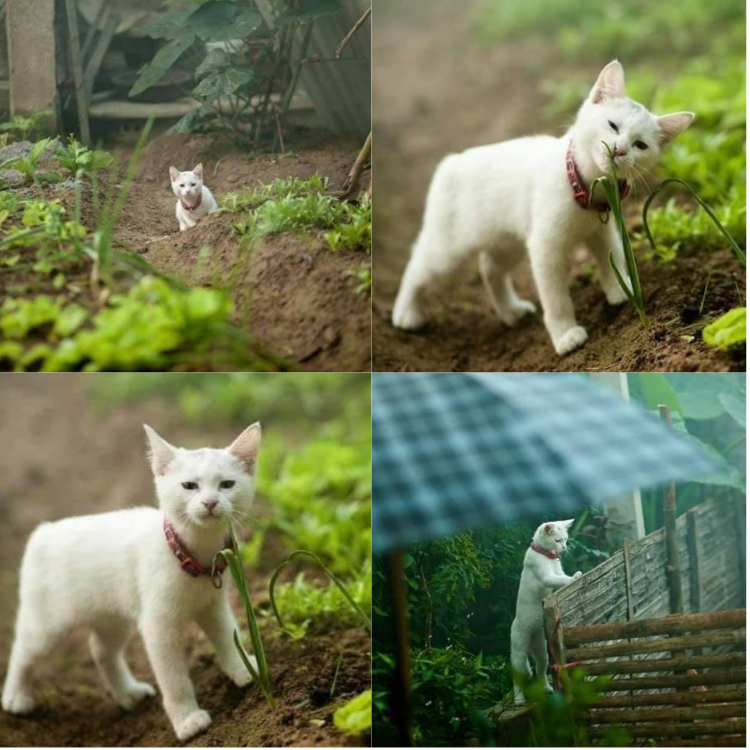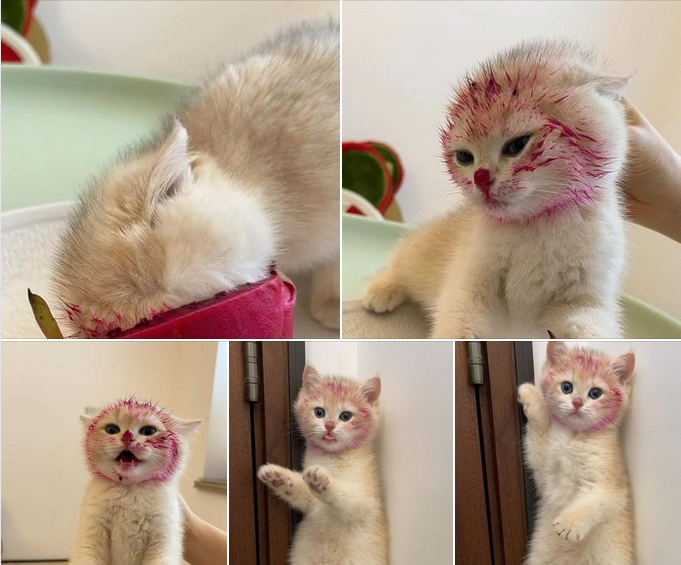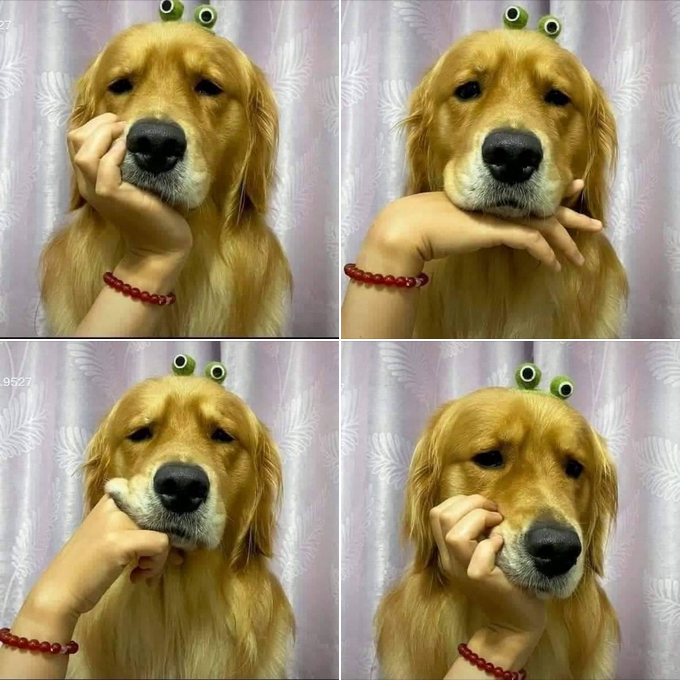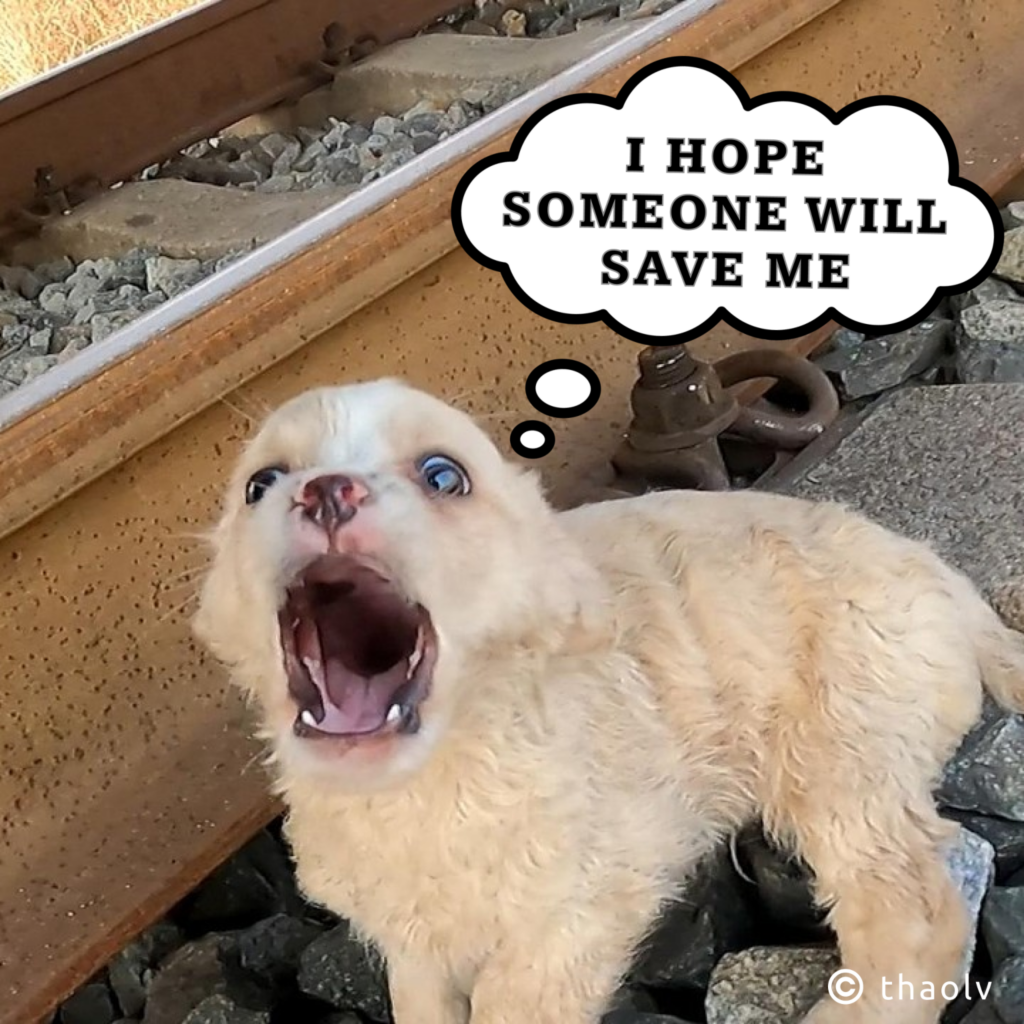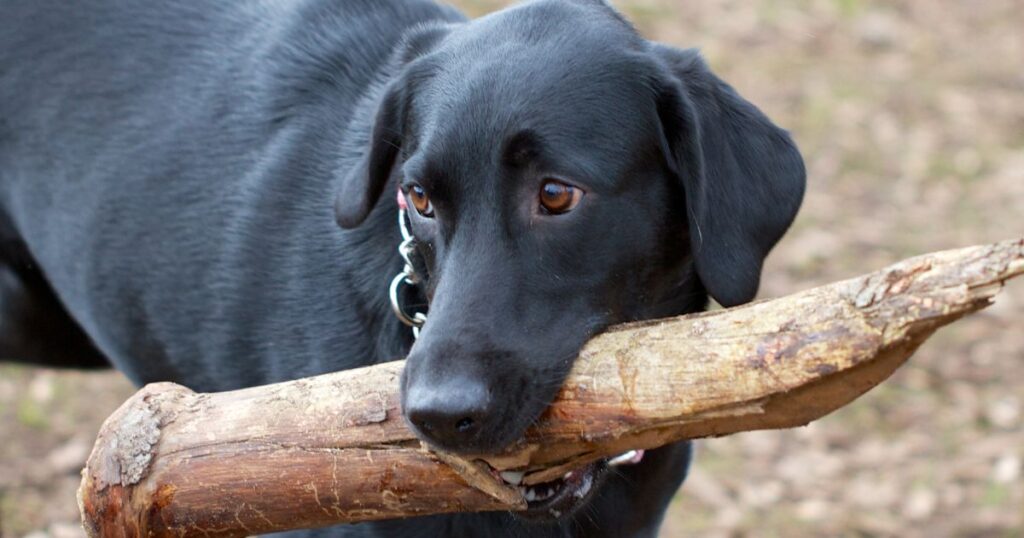
Labrador puppies are a popular choice for families due to their friendly demeanor and intelligence. However, they may also exhibit a common behavior issue known as puppy biting. It’s important to recognize that biting is a natural behavior in puppies and not a sign of aggression. During their early stages of growth, Labrador puppies use their mouths to explore their surroundings, which can lead to chewing on objects and playfully biting or nipping. While this behavior may seem harmless, it is crucial to train your puppy not to bite humans or other animals to prevent future issues. To address this issue, it is essential to learn effective techniques for discouraging biting and encouraging desirable behavior. Positive reinforcement and early training can help build a strong bond with your Labrador puppy while preventing biting from becoming a problem. At what age does biting typically start in Labradors?
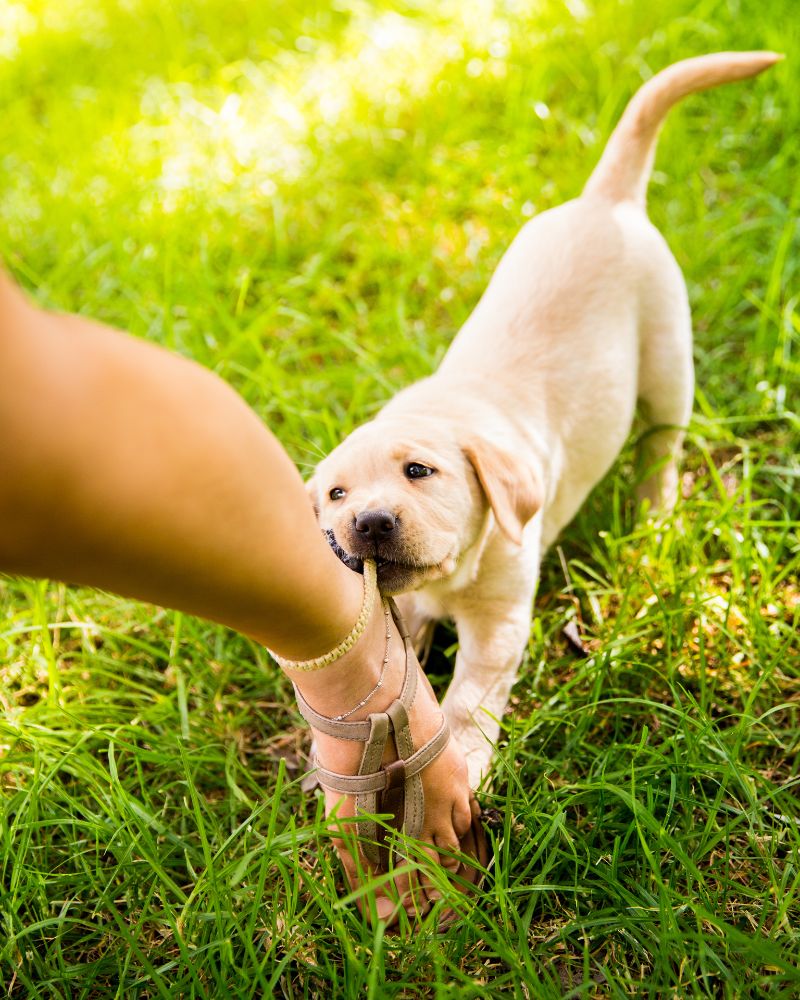
Labrador puppies, just like any other puppies, naturally start biting at a young age as they explore their world. This behavior usually begins when they are just a few weeks old, using their mouths to interact with different textures and tastes. Additionally, biting helps during the teething process, as puppies develop their adult teeth between 12 and 16 weeks old, causing discomfort in their gums. To manage puppy biting and promote good behavior, it is crucial to start bite inhibition training early on. Techniques like redirecting their biting to chew toys and rewarding gentle behavior can be effective. Remember, puppy biting is a normal part of their growth and development, and with patience and guidance, they should grow out of it as they mature. While Labrador puppies may go through a biting phase, it doesn’t mean they will grow up to be aggressive. Proper training and socialization can help them learn appropriate bite inhibition and reduce biting tendencies as they grow older. If your Labrador puppy is biting excessively, it could be due to playfulness, fear, or teething. Addressing the root cause and using appropriate training methods can help curb this behavior and prevent issues in the future. If your puppy is biting your children, it’s essential to address the behavior promptly. Ensuring that both your puppy and children are supervised during interactions, teaching your children how to play safely with the puppy, and redirecting the puppy’s biting to appropriate toys can help improve the situation. Remember, with consistency and positive reinforcement, you can help your Labrador puppy develop good manners and grow into a well-behaved adult dog.
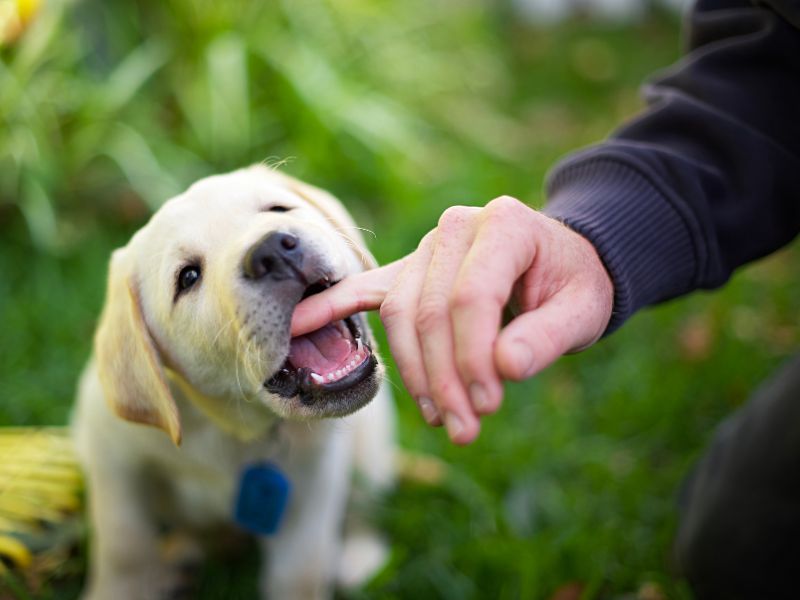
Labrador puppies are naturally playful and curious, using their mouths to explore and interact with the world. It is common for them to engage in biting behaviors as part of their development. However, if your puppy’s biting is becoming too hard or aggressive, it is important to address this issue to ensure a safe and harmonious relationship between your puppy and your family. There are several reasons why Labrador puppies may bite too hard, such as teething discomfort, playfulness, or fear. Teething can cause puppies to bite as a way to alleviate gum pain, while play-biting is a natural way for them to learn social skills. However, if your puppy exhibits signs of fear or aggression, it is essential to address this behavior promptly to prevent it from escalating. To help your Labrador puppy learn appropriate biting behavior, consider providing chew toys for them to gnaw on, redirecting their biting onto toys, and using consistent verbal cues like “no bite” or “gentle.” Socializing your puppy with other dogs can also help them learn natural bite inhibition. Remember to avoid yelling or physical punishment, as this can lead to increased aggression. Instead, focus on positive reinforcement and consistency in training to encourage gentle play behavior. If you are unsure whether your puppy’s biting is playful or aggressive, pay attention to their body language. Aggressive puppies may exhibit stiff or frozen body posture, facial tension, and vocalizations like snarling or growling. If you notice these signs, it is best to consult a veterinarian to rule out any underlying pain or health issues that may be contributing to the behavior. Overall, by understanding the reasons behind your Labrador puppy’s biting and implementing appropriate training techniques, you can help them develop into a gentle and well-behaved playmate for your family.
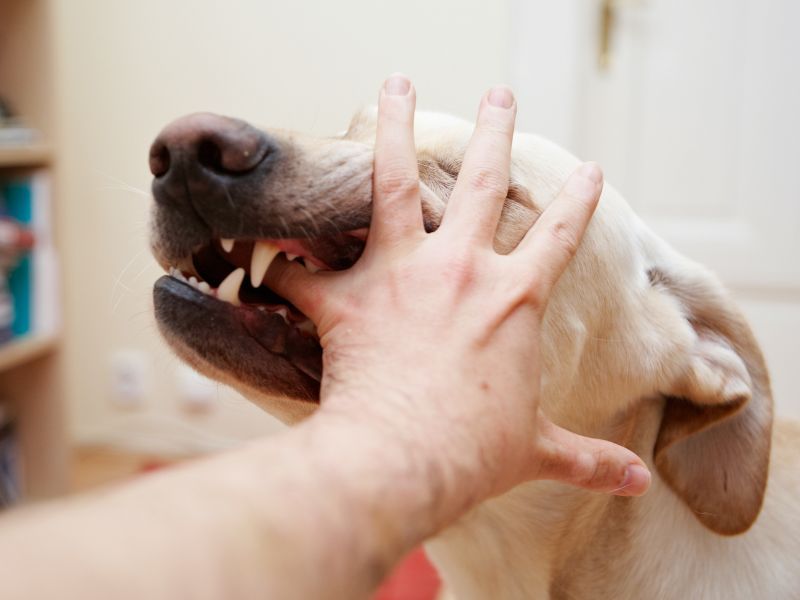
When Labrador puppies are young, it’s common for them to exhibit behaviors like biting, growling, and mouthing during play. These behaviors may appear intimidating, but they are typically harmless and part of normal puppy development. As puppies grow and mature, they usually outgrow these behaviors around six months of age. However, training and consistent reinforcement are vital in helping them learn appropriate social skills and behavior. Patience and persistence are key in guiding your Labrador puppy to become a well-behaved adult dog. Remember, addressing these behaviors early on can lead to a happier and healthier relationship with your pet.
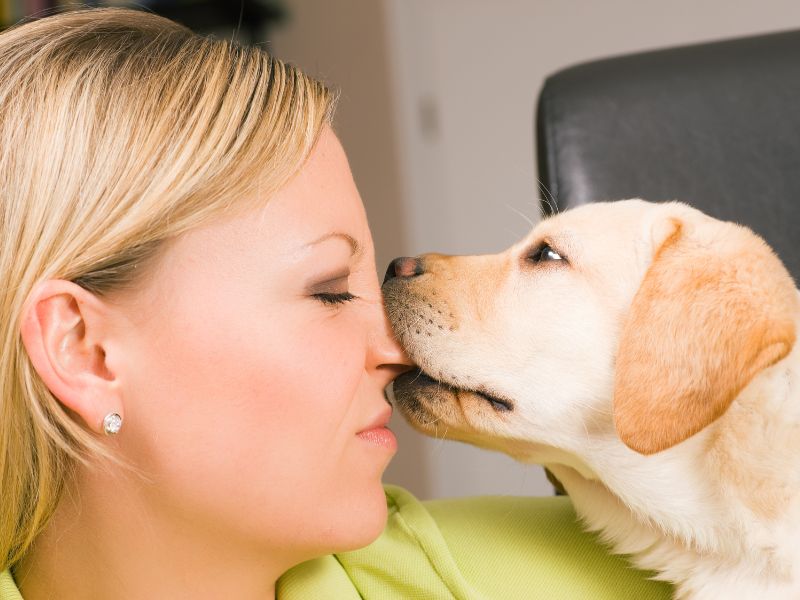
Labrador puppies typically outgrow their biting phase around 7 to 8 months of age, once they have all their adult teeth. While this is a natural process, some puppies may require training to prevent excessive biting, which can lead to behavioral issues in adulthood. It’s important to remember that biting is a normal behavior for puppies as they explore their surroundings and interact with others. Teaching them bite inhibition is essential for their socialization and safety as adult dogs. Owners can help lessen biting tendencies by redirecting their puppy to appropriate toys, using positive reinforcement, and being patient and consistent during the training process. Labrador puppies tend to bite more when they are excited, seeking attention, or have poor bite inhibition. Owners should avoid rewarding biting behavior with attention and focus on redirecting their puppy’s energy towards chew toys. Teaching bite inhibition through high-pitched yelps can help puppies learn to control the pressure of their bites. During teething, puppies may bite more to relieve discomfort. Offering them teething toys and monitoring their playtime can help them through this phase. Understanding and accommodating your Labrador puppy’s needs during this stage will ensure a smoother transition as they grow and develop.
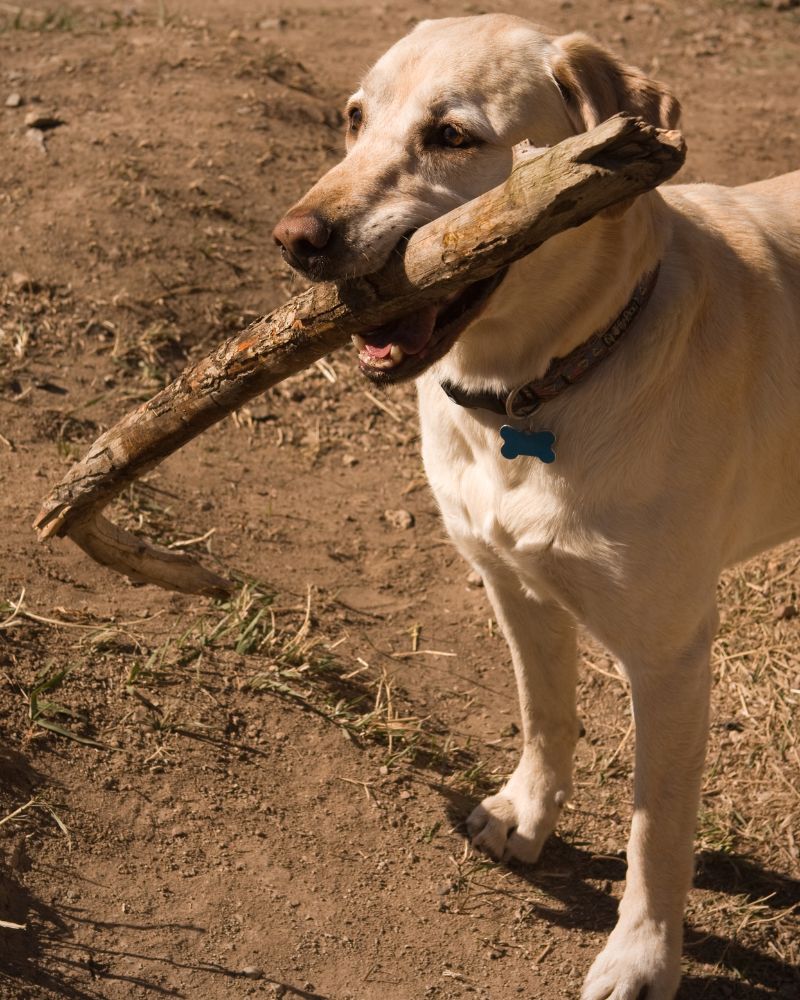
Labrador puppies are well-known for their playful and curious demeanor, which can sometimes lead to nipping and biting incidents. To ensure that your Lab puppy grows into a well-behaved adult dog, it is crucial to establish proper bite inhibition early on in their life. Renowned dog trainer Pippa offers valuable advice on addressing this common puppy behavior. First and foremost, Pippa emphasizes that biting and nipping are normal behaviors for puppies as they use their mouth to explore their surroundings and learn about the world around them. Therefore, patience and consistency are key during the training process. One effective technique suggested by Pippa is to mimic a puppy’s littermates during playtime. When your puppy bites too hard, emit a high-pitched yelp or say “Ouch!” to indicate that the force is not acceptable. Avoid pulling your hand away abruptly, as this may encourage a chase response. Here are more training tips from Pippa to help your Lab puppy stop biting: 1. Redirect the biting: Offer your puppy a chew toy or rawhide stick as a suitable alternative to keep them entertained and satisfied. 2. Positive reinforcement: Reward your puppy with praise or treats when they exhibit desirable behavior, such as refraining from biting during play. 3. Time-outs: If the biting persists, take a short break from interacting with your puppy to allow them to calm down and understand the consequences of their behavior. 4. Socialization: Introduce your Lab puppy to different people, animals, and environments to enhance their bite inhibition and overall behavior. During the teething phase, your Lab puppy may experience discomfort, leading to increased biting tendencies. Providing them with cold chew toys can help alleviate their sore gums and redirect their biting behavior. Remember to stay patient and consistent in your training efforts, and you will witness progress in your puppy’s bite inhibition over time. At 9 or 10 weeks of age, Labrador puppies are especially prone to nipping and biting, often due to the teething process and the need to explore boundaries. Offering a variety of engaging chew toys and using verbal cues can help discourage biting behavior. Socializing your puppy from an early age is crucial in preventing aggressive tendencies. Training a Labrador puppy not to bite requires patience, redirection, and consistent communication. Providing appropriate chew toys, using command training, and maintaining a calm environment are essential in teaching your Lab puppy proper behavior. With time and dedication, your Labrador puppy will learn to behave well and become a beloved companion.
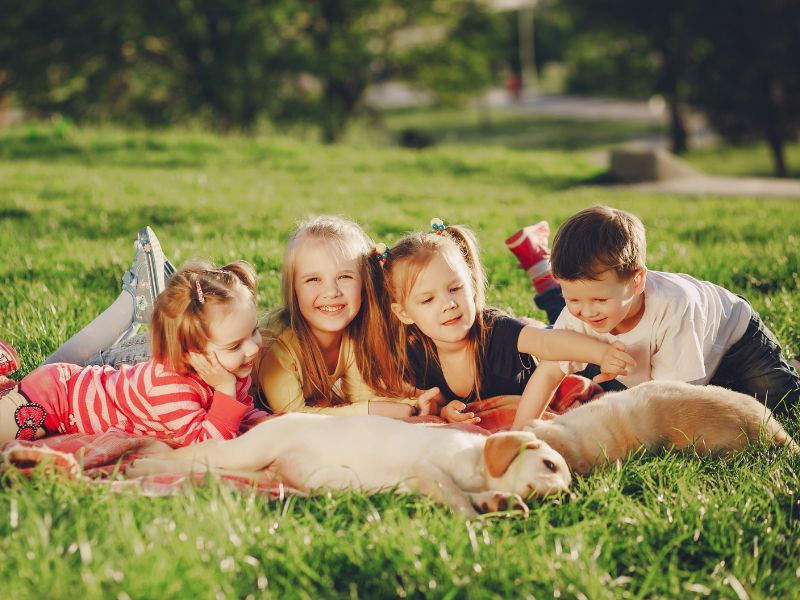
To prevent unwanted biting behavior in labrador puppies, it is crucial to monitor their interactions with young children closely. Using baby gates and cozy dog crates can help create barriers between puppies and kids when direct supervision is not possible. Additionally, it is important to encourage children to engage in calm play to avoid overexciting the puppies, which can lead to harder and more frequent biting. Teaching kids to avoid pulling the puppy’s tail or fur can also help prevent provoking biting behavior. When introducing your labrador puppy to new visitors, promoting a calm environment is key. Visitors should interact gently with the puppy, avoiding rough play. Providing chew toys or distractions for the puppy can also help minimize biting incidents. Informing visitors about the puppy’s training progress and asking them to follow your techniques can maintain consistency in addressing biting behavior. Exercise, training, redirection, and positive reinforcement are essential in curbing biting in labrador puppies. Regular exercise not only benefits the puppy’s physical and mental well-being but also reduces biting tendencies. Training methods like redirecting biting to chew toys and using a yelp sound to communicate unacceptable behavior can be effective. Consistency in applying these methods is crucial for successful results. Labrador puppies naturally go through a biting phase due to their instincts for exploring, play fighting, and teething. With patience and proper training, most puppies outgrow excessive biting by around six months old. Maintaining a loving and patient attitude throughout the training process can help foster a positive bond between you and your puppy. During the teething phase, it is important to prevent exacerbating biting behaviors in labrador puppies. Remaining patient and calm, avoiding rough play, and setting boundaries are crucial in preventing biting from becoming a bad habit. Providing appropriate chew toys, redirecting attention, and correcting unwanted biting behavior gently and consistently can help in curbing biting tendencies. In the third stage, focus on teaching your Labrador puppy not to apply pressure when biting. If they bite too hard, stop playing and ignore them briefly to teach them that excessive biting ends fun and attention. Consistency in training, avoiding punishment, using positive reinforcement, and redirecting attention can help in teaching your puppy appropriate biting behavior. If you need to move a biting puppy, distract them with a toy or treat to safely redirect their attention.
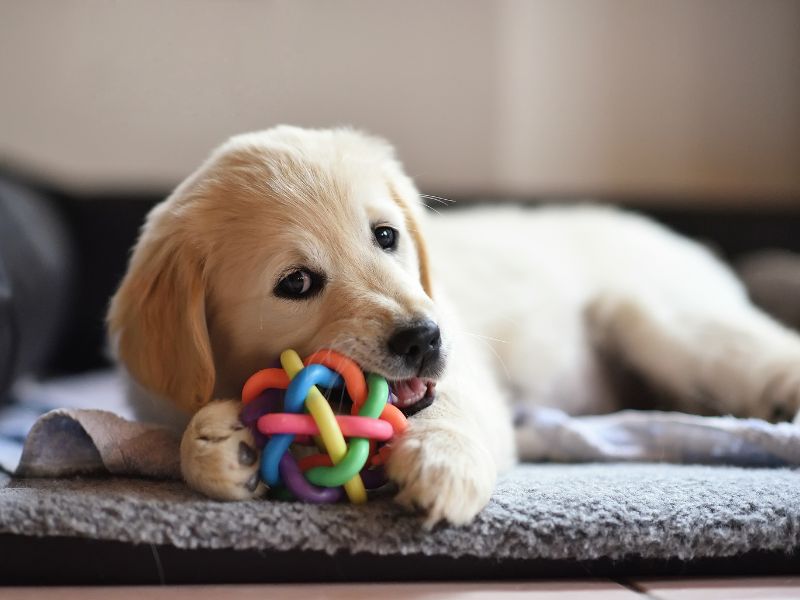
One effective way to prevent your Labrador puppy from biting hands is by providing distractions. Give your puppy appropriate chew toys to redirect their attention and fulfill their natural urge to chew and bite. This will help them learn that biting toys is acceptable, while biting hands is not. It is important to praise and reward your puppy when they choose the toy over your hand. This positive reinforcement will eventually discourage them from biting and help them develop good habits. Using a houseline can also be beneficial in dealing with Labrador puppies that tend to bite. A houseline is a lightweight, long leash that stays attached to your puppy indoors. It allows you to intervene and manage your puppy’s behavior easily. When your puppy starts to bite your hand, gently tug on the houseline and redirect their attention to a more suitable activity or toy. By using the houseline consistently, your puppy will learn that biting hands does not lead to the attention and play they desire. Patience and consistency are key in implementing these methods. Over time, your Labrador puppy will understand boundaries and develop bite inhibition, becoming a well-behaved and happy companion. In the training stage, the focus is on teaching your Labrador puppy not to bite through a simple yet effective exercise. The goal is to teach them that biting leads to the end of the game and encourage them to control their mouthing behavior. Hold a tasty treat in your fist and offer it to your puppy. When they stop biting, praise them and reward them with the treat. Repeat this exercise several times a day, gradually increasing the time they must refrain from biting before receiving the treat. If your puppy continues to mouth at you during the exercise, cease interaction immediately and provide a safe chew toy or alternative stimulation. Be patient and consistent in training your puppy to inhibit their biting behavior. In the playing stage, it is essential to encourage safe play with your Labrador puppy from an early age. Offer a variety of toys, teach bite inhibition, establish boundaries, use redirection, and provide positive reinforcement to promote safe and enjoyable playtime. By following these tips and being patient, your Labrador puppy will learn to play safely without excessive biting. Remember that every puppy is unique, and finding the right combination of techniques will help your puppy grow into a well-behaved and playful adult dog.
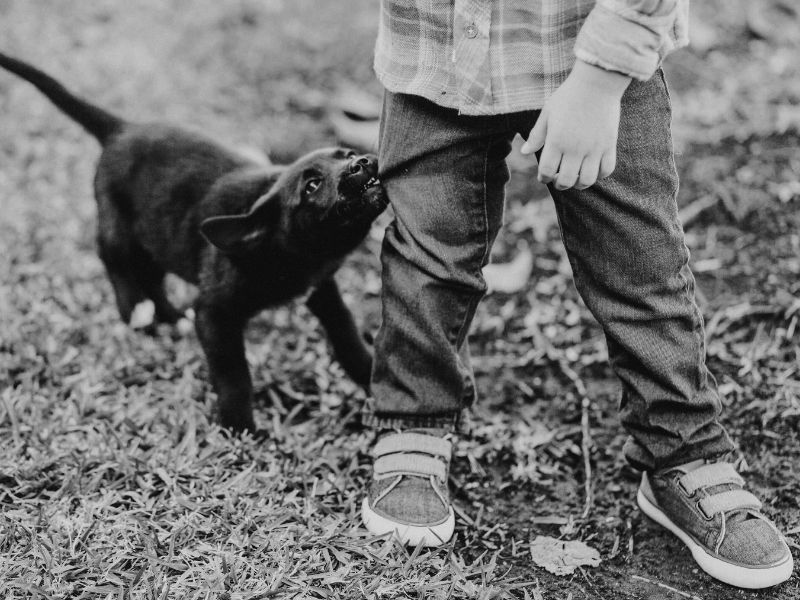
Labrador puppies, like all young dogs, go through a teething phase as they grow. This phase usually begins around 3-4 months old and continues until they have all their adult teeth, typically around 7 months of age. During this time, puppies may bite due to teething discomfort, as well as to explore and play. It’s important to remember that biting is a normal part of puppy behavior. Puppies use their mouths to interact with their surroundings and learn about the world. As they mature, their biting will naturally decrease as they develop other ways to engage. While some Labrador puppies may outgrow biting once they finish teething, others may continue to display this behavior until they reach maturity, typically between 2 and 4 years old. To help your puppy stop biting during teething, redirect their focus to appropriate chew toys and offer positive reinforcement for good behavior. In the meantime, it’s crucial to work on training your puppy to control their biting. Techniques like making a loud noise to startle them or withdrawing attention if they bite can be effective. Consistent training, redirection, exercise, and mental stimulation will all play a role in helping your Labrador puppy develop good habits and eventually stop biting altogether.

